- Home
- D. H. Lawrence
Complete Works of D.H. Lawrence (Illustrated) Page 14
Complete Works of D.H. Lawrence (Illustrated) Read online
Page 14
“Just healthy living flesh,” said I.
“No, I don’t mean that, because one feels — oh, as if the world were old and good, not old and bad.”
“Young, and undisciplined, and mad,” said I.
“No — but here, you, and Lettie, and Leslie, and me — it is so nice for us, and it seems so natural and good. Woodside is so old, and so sweet and serene — it does reassure one.”
“Yes,” said I, “we just live, nothing abnormal, nothing cruel and extravagant — just natural — like doves in a dovecote.”
“Oh! — doves! — they are so — so mushy.”
“They are dear little birds, doves. You look like one yourself, with the black band round your neck. You a turtle-dove, and Lettie a wood-pigeon.”
“Lettie is splendid, isn’t she? What a swing she has — what a mastery! I wish I had her strength — she just marches straight through in the right way — I think she’s fine.”
I laughed to see her so enthusiastic in her admiration of my sister. Marie is such a gentle, serious little soul. She went to the window. I kissed her, and pulled two berries off the mistletoe. I made her a nest in the heavy curtains, and she sat there looking out on the snow.
“It is lovely,” she said reflectively. “People must be ill when they write like Maxim Gorky.”
“They live in town,” said I.
“Yes — but then look at Hardy — life seems so terrible — it isn’t, is it?”
“If you don’t feel it, it isn’t — if you don’t see it. I don’t see it for myself.”
“It’s lovely enough for heaven.”
“Eskimo’s heaven perhaps. And we’re the angels, eh? And I’m an archangel.”
“No, you’re a vain, frivolous man. Is that — ? What is that moving through the trees?”
“Somebody coming,” said I.
It was a big, burly fellow moving curiously through the bushes.
“Doesn’t he walk funnily?” exclaimed Marie. He did. When he came near enough we saw he was straddled upon Indian snow-shoes. Marie peeped, and laughed, and peeped, and hid again in the curtains laughing. He was very red, and looked very hot, as he hauled the great meshes, shuffling over the snow; his body rolled most comically. I went to the door and admitted him, while Marie stood stroking her face with her hands to smooth away the traces of her laughter.
He grasped my hand in a very large and heavy glove, with which he then wiped his perspiring brow.
“Well, Beardsall, old man,” he said, “and how’s things? God, I’m not ‘alf hot! Fine idea though — ” He showed me his snow-shoes.
“Ripping! ain’t they? I’ve come like an Indian brave — ”
He rolled his “r’s”, and lengthened out his “ah’s” tremendously — ”brra-ave”.
“Couldn’t resist it though,” he continued.
“Remember your party last year — Girls turned up? On the war-path, eh?” He pursed up his childish lips and rubbed his fat chin.
Having removed his coat, and the white wrap which protected his collar, not to mention the snowflakes, which Rebecca took almost as an insult to herself — he seated his fat, hot body on a chair, and proceeded to take off his gaiters and his boots. Then he donned his dancing-pumps, and I led him upstairs.
“Lord, I skimmed here like a swallow!” he continued — and I looked at his corpulence.
“Never met a soul, though they’ve had a snow-plough down the road. I saw the marks of a cart up the drive, so I guessed the Tempests were here. So Lettie’s put her nose in Tempest’s nosebag — leaves nobody a chance, that — some women have rum taste — only they’re like ravens, they go for the gilding — don’t blame ‘em — only it leaves nobody a chance. Madie Howitt’s coming, I suppose?”
I ventured something about the snow.
“She’ll come,” he said, “if it’s up to the neck. Her mother saw me go past.”
He proceeded with his toilet. I told him that Leslie had sent the carriage for Alice and Madie. He slapped his fat legs, and exclaimed:
“Miss Gall — I smell sulphur! Beardsall, old boy, there’s fun in the wind. Madie, and the coy little Tempest, and — ” he hissed a line of a music-hall song through his teeth.
During all this he had straightened his cream and lavender waistcoat.
“Little pink of a girl worked it for me — a real juicy little peach — chipped somehow or other” — he had arranged his white bow — he had drawn forth two rings, one a great signet, the other gorgeous with diamonds, and had adjusted them on his fat white fingers; he had run his fingers delicately through his hair, which rippled backwards a trifle tawdrily — being fine and somewhat sapless; he had produced a box, containing a cream carnation with suitable greenery; he had flicked himself with a silk handkerchief, and had dusted his patent-leather shoes; lastly, he had pursed up his lips and surveyed himself with great satisfaction in the mirror. Then he was ready to be presented.
“Couldn’t forget today, Lettie. Wouldn’t have let old Pluto and all the bunch of ‘em keep me away. I skimmed here like a ‘Brra-ave’ on my snow-shoes, like Hiawatha coming to Minnehaha.”
“Ah — that was famine,” said Marie softly.
“And this is a feast, a gorgeous feast, Miss Tempest,” he said, bowing to Marie, who laughed.
“You have brought some music?” asked mother.
“Wish I was Orpheus,” he said, uttering his words with exaggerated enunciation, a trick he had caught from his singing, I suppose.
“I see you’re in full feather, Tempest. Is she kind as she is fair?”
“Who?”
Will pursed up his smooth sensuous face that looked as if it had never needed shaving. Lettie went out with Marie, hearing the bell ring.
“She’s an houri!” exclaimed William. “Gad, I’m almost done for! She’s a lotus-blossom! — But is that your ring she’s wearing, Tempest?”
“Keep off,” said Leslie.
“And don’t be a fool,” said I.
“Oh, 0-0-Oh!” drawled Will, “so we must look the other way! ‘Le bel homme sans merci’!”
He sighed profoundly, and ran his fingers through his hair, keeping one eye on himself in the mirror as he did so. Then he adjusted his rings and went to the piano. At first he only splashed about brilliantly. Then he sorted the music, and took a volume of Tchaikovsky’s songs. He began the long opening of one song, was unsatisfied, and found another, a serenade of Don Juan. Then at last he began to sing.
His voice is a beautiful tenor, softer, more mellow, less strong and brassy than Leslie’s. Now it was raised that it might be heard upstairs. As the melting gush poured forth, the door opened. William softened his tones, and sang ‘dolce’, but he did not glance round.
“Rapture! — Choir of Angels,” exclaimed Alice, clasping her hands and gazing up at the lintel of the door like a sainted virgin.
“Persephone — Europa — ” murmured Madie, at her side, getting tangled in her mythology.
Alice pressed her clasped hands against her bosom in ecstasy as the notes rose higher.
“Hold me, Madie, or I shall rush to extinction in the arms of this siren.” She clung to Madie. The song finished, and Will turned round.
“Take it calmly, Miss Gall,” he said. “I hope you’re not hit too badly.”
“Oh — how can you say ‘take it calmly’ — how can the savage beast be calm!”
“I’m sorry for you,” said Will.
“You are the cause of my trouble, dear boy,” replied Alice. “I never thought you’d come,” said Madie.
“Skimmed here like an Indian ‘brra-ave’,” said Will. “Like Hiawatha towards Minnehaha. I knew you were coming.”
“You know,” simpered Madie, “it gave me quite a flutter when I heard the piano. It is a year since I saw you. How did you get here?”
“I came on snow-shoes,” said he. “Real Indian — came from Canada — they’re just ripping.”
“Oh — Aw-w do go and put them on and
show us — do! — do perform for us, Billy dear!” cried Alice.
“Out in the cold and driving sleet — no fear,” said he, and he turned to talk to Madie. Alice sat chatting with Mother. Soon Tom Smith came, and took a seat next to Marie; and sat quietly looking over his spectacles with his sharp brown eyes, full of scorn for William, full of misgiving for Leslie and Lettie.
Shortly after, George and Emily came in. They were rather nervous. When they had changed their clogs, and Emily had taken off her brown-paper leggings, and he his leather ones, they were not anxious to go into the drawing-room. I was surprised — and so was Emily — to see that he had put on dancing shoes.
Emily, ruddy from the cold air, was wearing a wine-coloured dress, which suited her luxurious beauty. George’s clothes were well made — it was a point on which he was particular, being somewhat self-conscious. He wore a jacket and a dark bow. The other men were in evening dress.
We took them into the drawing-room, where the lamp was not lighted, and the glow of the fire was becoming evident in the dusk. We had taken up the carpet — the floor was all polished — and some of the furniture was taken away — so that the room looked large and ample.
There was general hand-shaking, and the newcomers were seated near the fire. First Mother talked to them — then the candles were lighted at the piano, and Will played to us. He is an exquisite pianist, full of refinement and poetry. It is astonishing, and it is a fact. Mother went out to attend to the tea, and after a while, Lettie crossed over to Emily and George, and, drawing up a low chair, sat down to talk to them. Leslie stood in the window bay, looking out on the lawn where the snow grew bluer and bluer and the sky almost purple.
Lettie put her hands on Emily’s lap, and said softly, “Look — do you like it?”
“What! Engaged?” exclaimed Emily.
“I am of age, you see,” said Lettie.
“It is a beauty, isn’t it? Let me try it on, will you? Yes, I’ve never had a ring. There, it won’t go over my knuckle-end — I thought not. Aren’t my hands red? — it’s the cold — yes, it’s too small for me. I do like it.”
George sat watching the play of the four hands in his sister’s lap, two hands moving so white and fascinating in the twilight, the other two rather red, with rather large bones, looking so nervous, almost hysterical. The ring played between the four hands, giving an occasional flash from the twilight or candlelight.
“You must congratulate me,” she said, in a very low voice, and two of us knew she spoke to him.
“Ah, yes,” said Emily, “I do.”
“And you?” she said, turning to him, who was silent. “What do you want me to say?” he asked.
“Say what you like.”
“Some time, when I’ve thought about it.”
“Cold dinners!” laughed Lettie, awaking Alice’s old sarcasm at his slowness.
“What?” he exclaimed, looking up suddenly at her taunt. She knew she was playing false; she put the ring on her finger and went across the room to Leslie, laying her arm over his shoulder, and leaning her head against him, murmuring softly to him. He, poor fellow, was delighted with her, for she did not display her fondness often.
We went in to tea. The yellow shaded lamp shone softly over the table, where Christmas roses spread wide open among some dark-coloured leaves; where the china and silver and the coloured dishes shone delightfully. We were all very gay and bright; who could be otherwise, seated round a well-laid table, with young company, and the snow outside? George felt awkward when he noticed his hands over the table, but for the rest, we enjoyed ourselves exceedingly.
The conversation veered inevitably to marriage.
“But what have you to say about it, Mr Smith?” asked little Marie.
“Nothing yet,” replied he in his peculiar grating voice. “My marriage is in the unanalysed solution of the future — when I’ve done the analysis I’ll tell you.”
“But what do you think about it — ?”
“Do you remember, Lettie,” said Will Bancroft, “that little red-haired girl who was in our year at college? She has just married old Craven out of Physic’s department.”
“I wish her joy of it!” said Lettie; “Wasn’t she an old flame of yours?”
“Among the rest,” he replied, smiling. “Don’t you remember you were one of them; you had your day.”
“What a joke that was!” exclaimed Lettie. “We used to go in the arboretum at dinner-time. You lasted half one autumn. Do you remember when we gave a concert, you and I, and Frank Wishaw, in the small lecture theatre?”
“When the Prinny was such an old buck, flattering you,” continued Will. “And that night Wishaw took you to the station — sent old Gettim for a cab and saw you in, large as life — never was such a thing before. Old Wishaw won you with that cab, didn’t he?”
“Oh, how I swelled!” cried Lettie. “There were you all at the top of the steps gazing with admiration! But Frank Wishaw was not a nice fellow, though he played the violin beautifully. I never liked his eyes — ”
“No,” added Will. “He didn’t last long, did he? — though long enough to oust me. We had a giddy ripping time in Coll., didn’t we?”
“It was not bad,” said Lettie. “Rather foolish. I’m afraid I wasted my three years.”
“I think,” said Leslie, smiling, “you improved the shining hours to great purpose.”
It pleased him to think what a flirt she had been, since the flirting had been harmless, and only added to the glory of his final conquest. George felt very much left out during these reminiscences.
When we had finished tea, we adjourned to the drawing-room. It was in darkness, save for the fire-light. The mistletoe had been discovered, and was being appreciated.
“Georgie, Sybil, Sybil, Georgie, come and kiss me,” cried Alice.
Will went forward to do her the honour. She ran to me, saying, “Get away, you fat fool — keep on your own preserves. Now, Georgie dear, come and kiss me, ‘cause you haven’t got nobody else but me, no y’ ‘aven’t. Do you want to run away, like Georgy-Porgy apple-pie? Shan’t cry, sure I shan’t, if you are ugly.”
She took him and kissed him on either cheek, saying softly, “You shan’t be so serious, old boy — buck up, there’s a good fellow.”
We lighted the lamp, and charades were proposed, Leslie and Lettie, Will and Madie and Alice went out to play. The first scene was an elopement to Gretna Green — with Alice a maidservant, a part that she played wonderfully well as a caricature. It was very noisy, and extremely funny. Leslie was in high spirits. It was remarkable to observe that, as he became more animated, more abundantly energetic, Lettie became quieter. The second scene, which they were playing as excited melodrama, she turned into small tragedy with her bitterness. They went out, and Lettie blew us kisses from the doorway.
“Doesn’t she act well?” exclaimed Marie, speaking to Tom.
“Quite realistic,” said he.
“She could always play a part well,” said Mother.
“I should think,” said Emily, “she could take a role in life and play up to it.”
“I believe she could,” Mother answered. “There would only be intervals when she would see herself in a mirror acting.”
“And what then?” said Marie.
“She would feel desperate, and wait till the fit passed off,” replied my mother, smiling significantly.
The players came in again. Lettie kept her part subordinate. Leslie played with brilliance; it was rather startling how he excelled. The applause was loud — but we could not guess the word. Then they laughed, and told us. We clamoured for more.
“Do go, dear,” said Lettie to Leslie, “and I will be helping to arrange the room for the dances. I want to watch you — I am rather tired — it is so exciting — Emily will take my place.”
They went. Marie and Tom, and Mother and I played bridge in one corner. Lettie said she wanted to show George some new pictures, and they bent over a portfolio for some t
ime. Then she bade him help her to clear the room for the dances.
“Well, you have had time to think,” she said to him.
“A short time,” he replied. “What shall I say?”
“Tell me what you’ve been thinking.”
“Well — about you — ” he answered, smiling foolishly. “What about me?” she asked, venturesome.
“About you, how you were at college,” he replied.
“Oh! I had a good time. I had plenty of boys. I liked them all, till I found there was nothing in them; then they tired me.”
“Poor boys!” he said, laughing. “Were they all alike?”
“All alike,” she replied, “and they are still.”
“Pity,” he said, smiling. “It’s hard lines on you.”
“Why?” she said.
“It leaves you nobody to care for — ” he replied. “How very sarcastic you are. You make one reservation.”
“Do I?” he answered, smiling. “But you fire sharp into the air, and then say we’re all blank cartridges — except one, of course.”
“You?” she queried ironically — ”Oh, you would for ever hang fire.”
“‘Cold dinners!’“ he quoted in bitterness. “But you knew I loved you. You knew well enough.”
“Past tense,” she replied, “thanks — make it perfect next time.”
“It’s you who hang fire — it’s you who make me,” he said.
“And so from the retort circumstantial to the retort direct.” she replied, smiling.
“You see — you put me off,” he insisted, growing excited. For reply, she held out her hand and showed him the ring. She smiled very quietly. He stared at her with darkening anger.
“Will you gather the rugs and stools together, and put them in that corner?” she said.
He turned away to do so, but he looked back again, and said, in low, passionate tones:
“You never counted me. I was a figure naught in the counting all along.”
“See — there is a chair that will be in the way,” she replied calmly; but she flushed, and bowed her head. She turned away, and he dragged an armful of rugs into a corner.

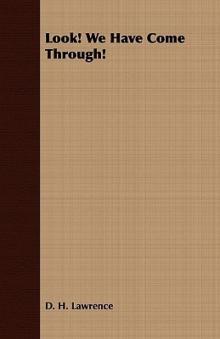 Look! We Have Come Through!
Look! We Have Come Through!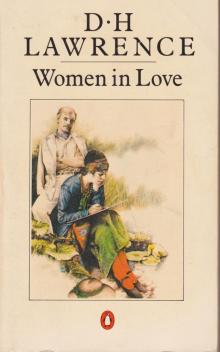 Women in Love
Women in Love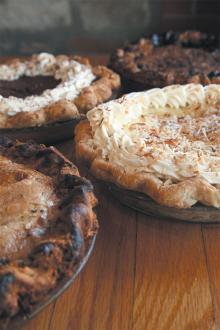 The Ladybird
The Ladybird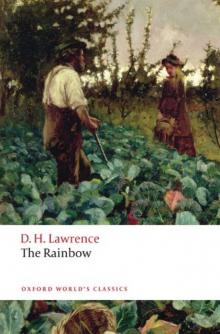 The Rainbow
The Rainbow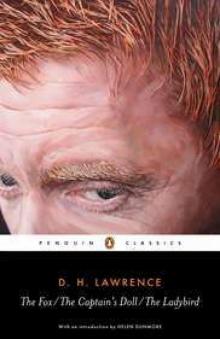 The Captain's Dol
The Captain's Dol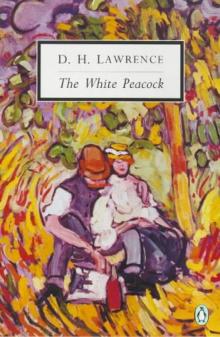 The White Peacock
The White Peacock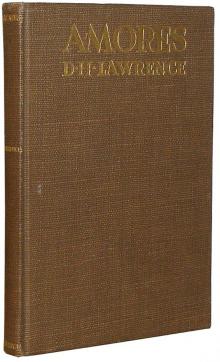 Amores
Amores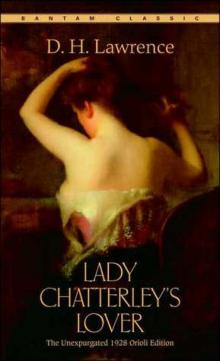 Lady Chatterley's Lover
Lady Chatterley's Lover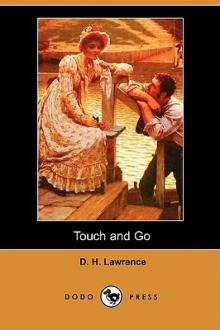 Touch and Go
Touch and Go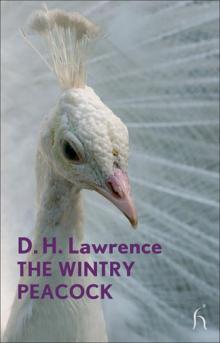 The Wintry Peacock
The Wintry Peacock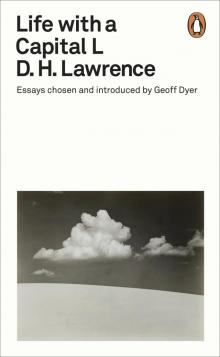 Life with a Capital L
Life with a Capital L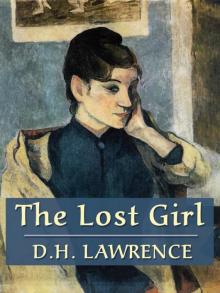 The Lost Girl
The Lost Girl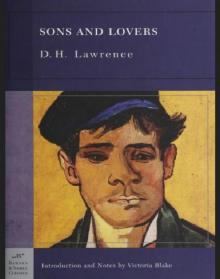 Sons and Lovers
Sons and Lovers England, My England
England, My England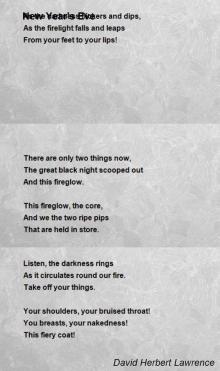 New Poems
New Poems Twilight in Italy
Twilight in Italy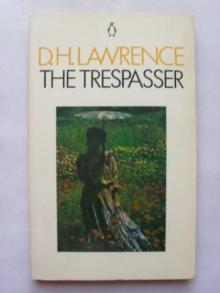 The Trespasser
The Trespasser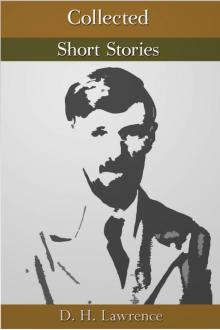 The Collected Short Stories
The Collected Short Stories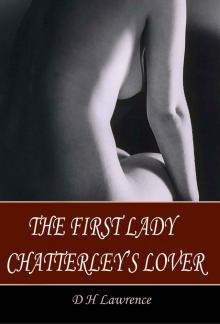 The First Lady Chatterley's Lover
The First Lady Chatterley's Lover Kangaroo
Kangaroo Bay
Bay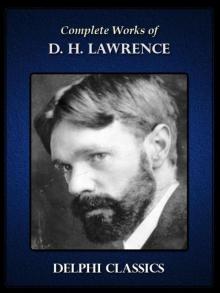 Complete Works of D.H. Lawrence
Complete Works of D.H. Lawrence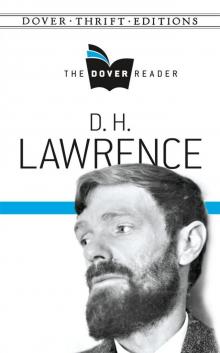 D H Lawrence- The Dover Reader
D H Lawrence- The Dover Reader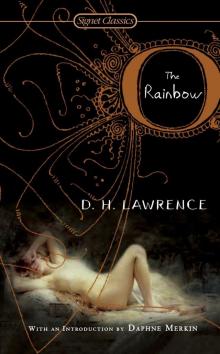 The Rainbow (100th Anniversary ed.)
The Rainbow (100th Anniversary ed.)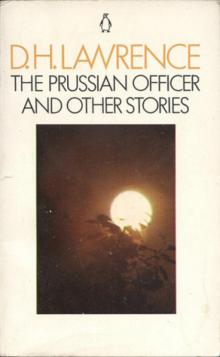 The Prussian Officer
The Prussian Officer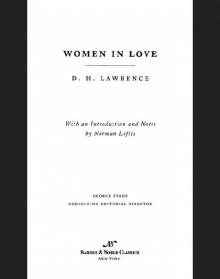 Women in Love (Barnes & Noble Classics Series)
Women in Love (Barnes & Noble Classics Series)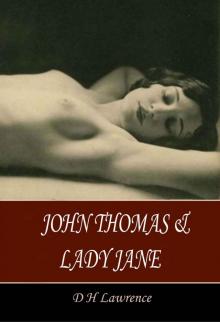 John Thomas and Lady Jane
John Thomas and Lady Jane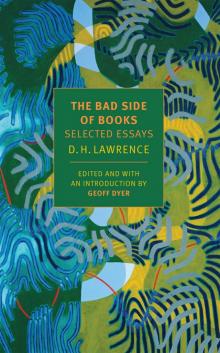 The Bad Side of Books
The Bad Side of Books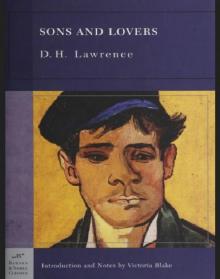 Sons and Lovers (Barnes & Noble Classics Series)
Sons and Lovers (Barnes & Noble Classics Series) Selected Stories
Selected Stories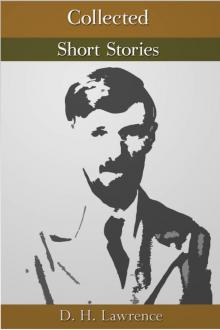 Collected Short Stories
Collected Short Stories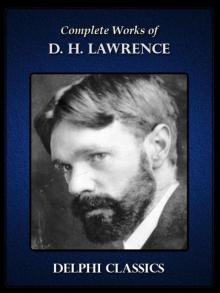 Complete Works of D.H. Lawrence (Illustrated)
Complete Works of D.H. Lawrence (Illustrated)